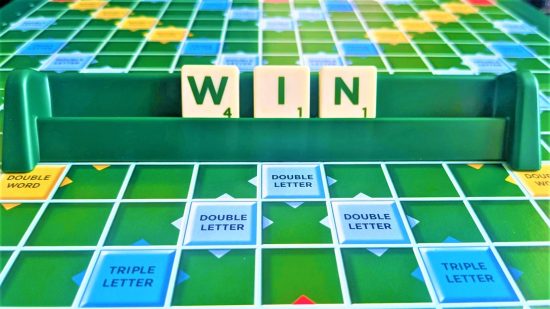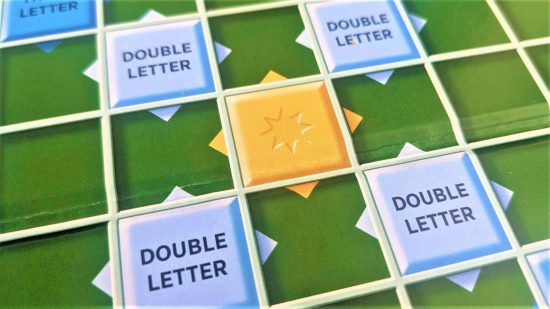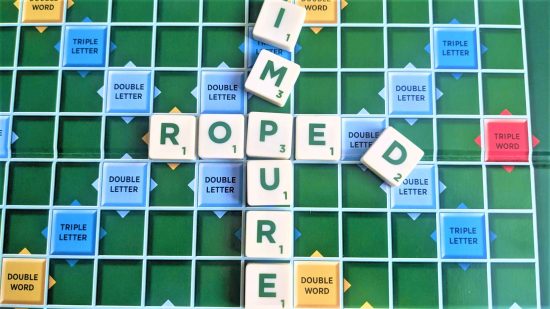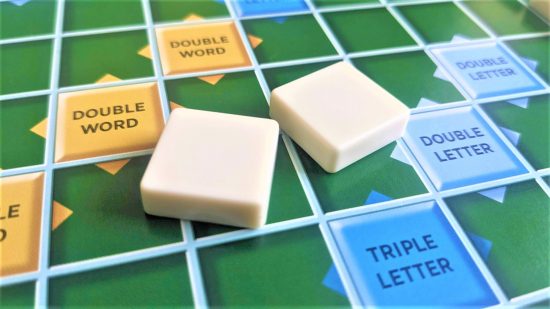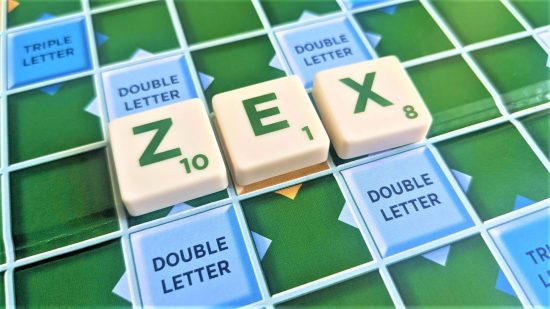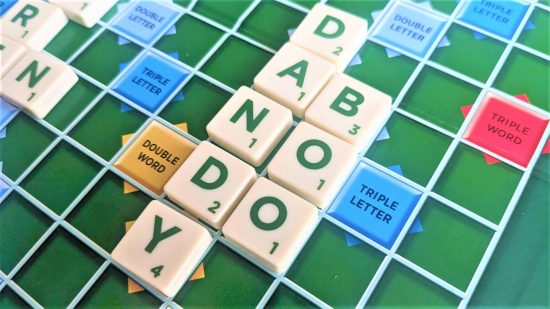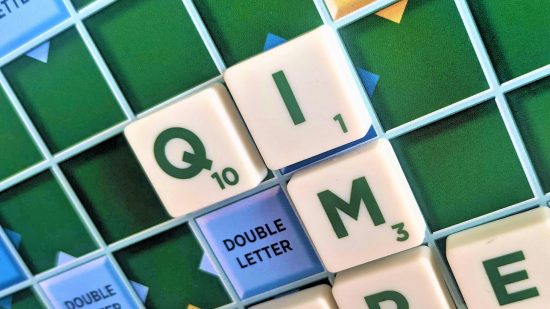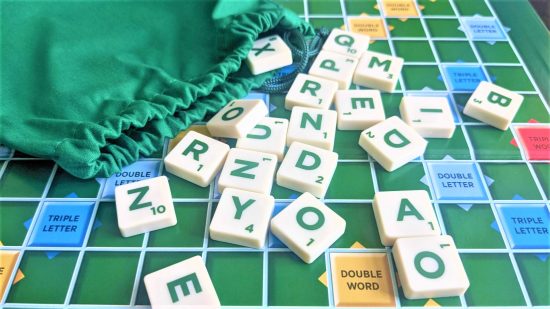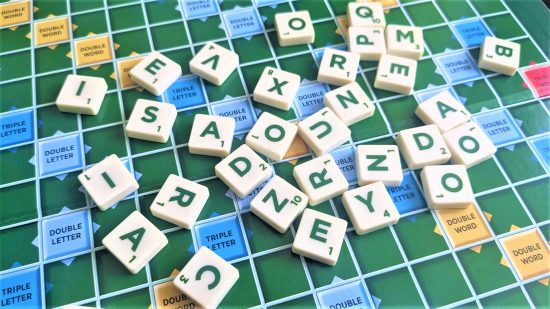Learning how to play Scrabble is an easy feat, but learning a winning Scrabble strategy is surprisingly complex. It’s not enough to know your dictionary back-to-front – knowing how to win Scrabble also involves careful tile management, uncommon play strategies, and a good understanding of both board and opponent.
To help you up your Scrabble game, we’ve compiled a list of the best Scrabble hints and strategies. We know our way around all the best board games (including many a classic board game and playing card game), so we’re well-equipped to advise on everything from Scrabble to how to play chess to – yes – how to win Monopoly.
Here are the best Scrabble strategy tips:
- Choose your starting tile carefully
- Use prefixes, suffixes, and hook letters
- Save blank tiles for long words only
- Swot up on two- and three-letter words
- Memorize unusual words for sticky situations
- Plan for bonus squares
- Track how many letters are left in play
- Don’t discard unless you have to
Choose your starting tile carefully
Going first in Scrabble automatically gives you a double-word score tile to work with. But don’t let this first-turn boost make you complacent – it can be crucial to pick the best word possible to cover that central star.
Playing a common letter (A, E, I, R, or T, for example) in the centre of the board opens up plenty of possible plays for your opponent, so choosing an uncommon letter is generally best if you want to play defensively. Many top Scrabble players also like to play tricky letters (like Z, Q, or X) sooner rather than later to stop them clogging up their tile tray for too long.
Both of these are defensive plays for a first turn. If you struggle to create impressive, long words in Scrabble, this tactic could be for you. A short starting word is also a strong defense tactic, opening up fewer letters and bonus squares to your opponent.
This isn’t the only way to play Scrabble, though. More aggressive or confident players may instead want to open up the board early and race to those big-scoring bonus squares. In this case, a word of at least five letters is best – as it nabs you an extra double-letter score on your first turn.
Use prefixes, suffixes, and hook letters
Often, the best way to score big is to modify a strong word that’s already on the board. You can do this in a few ways:
- Add a prefix (UN-, DE-, RE-)
- Add a suffix (-ING, -ITY, -ED, -ER)
- Add a hook letter to the end (Y, E, R, or D)
An S counts as a hook letter, but these should be used sparingly. There are only four S tiles in the entire game, so they’re best saved for a major high-scorer.
Save blank tiles for long words only
The two blank tiles in Scrabble can represent any letter, which is immensely powerful. However, they’re not worth any points – so you’ll need to be tactical about placing them. We recommend saving blank tiles for only the longest Scrabble words.
A ‘bingo’ word that uses all the tiles in your tray gets an automatic 50-point bonus, so this is the ideal scenario to use a blank tile in. But if you’re not able to score a bingo, any long high-scoring word will still be worth it.
Swot up on two- and three-letter words
A surprising amount of points can be racked up by playing small words in Scrabble. These are particularly powerful in two different ways:
Using up rare letters
There’s a surprising amount of Scrabble words with Z, Scrabble words with Q, and Scrabble words with X that have just two or three letters. These can be quick ways to use up tricky tiles and score big. ‘Zex’ scores you 19 points with just three tiles – now imagine that when played on a bonus square.
Parallel words
One expert tactic is playing words parallel to an existing word (as seen in the picture above). By playing ‘Boo’ directly beside ‘Dandy’, you’ve now created four new, simultaneously-scoring words:
- ‘Ab’ – Four points
- ‘No’ – Two points
- ‘Do’ – Three points
- ‘Boo’ – Five points
‘Boo’ on its own scores a measly five points, but a clever parallel play boosts that to 14. Knowing a wide range of short words can make parallel plays more likely, meaning more opportunities to enhance your score.
Memorize unusual words for sticky situations
Every Scrabble player will find themselves in a tight spot at some point. You’ve got a Q with no U, a sea of vowels, or maybe no vowels at all. Fear not – there are possible plays in all of these scenarios. Memorizing some more unusual words ready for your next game will help stop serious bottlenecks.
Plan for bonus squares
There are a range of strategies to consider when it comes to using bonus squares. Whichever you prefer to use, it helps to have a plan.
Some players prefer to rush to these squares as soon as possible, blocking them off to prevent opponents from gaining their benefits. Others like to save high-scoring but easy-to-use letters like K or J for these spots in order to maximize value. Even braver players may aim to create a huge word that spans multiple bonus squares for an unstoppable score.
Track how many letters are left in play
Scrabble is a game of phases. At the start, all the letters are to play for, giving you a sea of possible scores. By the end, though, only a few tiles will be left in the bag. Being able to predict what you might pull can help score some end-game words.
In case you need a refresher, here’s how many letters are in an English-language edition of Scrabble:
| Letter | Points | Number of tiles in game |
| Blank | 0 | 2 |
| A | 1 | 9 |
| B | 3 | 2 |
| C | 3 | 2 |
| D | 2 | 4 |
| E | 1 | 12 |
| F | 4 | 2 |
| G | 2 | 3 |
| H | 4 | 2 |
| I | 1 | 9 |
| J | 8 | 1 |
| K | 5 | 1 |
| L | 1 | 4 |
| M | 3 | 2 |
| N | 1 | 6 |
| O | 1 | 8 |
| P | 3 | 2 |
| Q | 10 | 1 |
| R | 1 | 6 |
| S | 1 | 4 |
| T | 1 | 6 |
| U | 1 | 4 |
| V | 4 | 2 |
| W | 4 | 2 |
| X | 8 | 1 |
| Y | 4 | 2 |
| Z | 10 | 1 |
Don’t discard unless you have to
Spending a turn to replace some (or all) of your letters can be a life-saving play in a tough game. However, it should be avoided whenever possible – one less turn scoring is nearly always a disadvantage.
Need more tabletop gaming tips? Here’s Poker hand rankings explained, as well as an approachable Blackjack rules tutorial. We can also recommend some of the best brain-bending strategy board games the modern tabletop scene has to offer.
